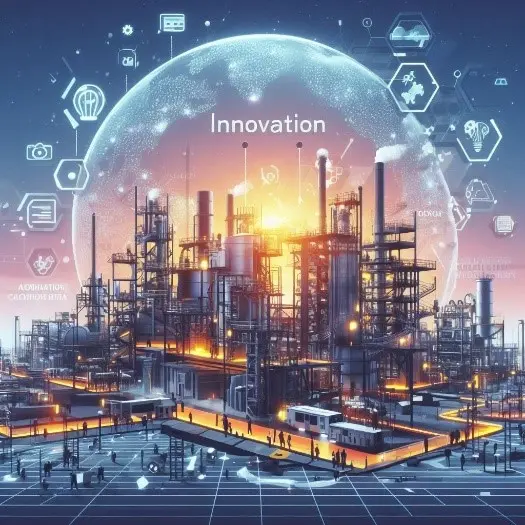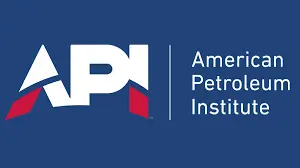The refining industry is one of the most complex and vital in the energy world. It is the bridge between the extraction of crude oil and the delivery of finished products that power our daily lives. However, with complexity comes the need for clear and rigorous standards that ensure safety, quality and efficiency at every step of the process. This is where API (American Petroleum Institute) Standards play a crucial role.
What is API and API Standards?
The American Petroleum Institute (API) is an organization that has established a series of technical standards for the oil and natural gas industry. These standards cover everything from drilling and production to transportation and refining. Its objective is to ensure that processes are safe, efficient and environmentally friendly.
The American Petroleum Institute (API) traces its roots to the early days of the petroleum industry, specifically 1919, an era marked by rapid technological advances and a growing demand for regulation and standardization. Their story and the reason behind the creation of their standards is a narrative of innovation, safety and commitment to excellence. However, with this growth came significant challenges. There was a lack of standardization in equipment and practices, leading to inefficiencies and, in some cases, accidents.
Leading companies in the industry recognized the need for a body that could address these issues and promote best practice in the industry. Thus, they came together to form the American Petroleum Institute. Its initial mission was to provide a forum to discuss and develop solutions to common problems, promoting cooperation and sharing best practices.
The reason for Standards
From its inception, one of API’s primary objectives was the creation and promulgation of technical standards. There were several reasons for this:
- Safety: The extraction, transportation and refining of oil and gas are inherently dangerous activities. The standards were essential to ensure that operations were carried out safely, minimizing risks to workers and the environment.
- Efficiency: The lack of standardization led to inefficiencies in production and refining. By establishing standards, API sought to ensure that equipment and processes were consistent and efficient across the industry.
- Quality: For petroleum products to be useful (and safe) for consumers, they must meet certain specifications. API standards ensure that products such as gasoline, diesel, and lubricant meet consistent levels of quality.
- Competitiveness: In a global market, oil companies needed to compete effectively. Standards allow companies to operate on a level playing field and ensure they meet international expectations.

5. Innovación: A medida que la tecnología avanzaba, era esencial que la industria adoptara las mejores prácticas y tecnologías disponibles. Los estándares de API ayudan a guiar la innovación de manera que beneficie a toda la industria.

Visión general de las Normas API en la industria del petróleo y gas
The American Petroleum Institute (API) has published more than 700 standards and recommendations covering all aspects of the oil and gas industry. These standards address a wide variety of topics, from equipment and machinery to operating practices and safety. Listing and describing each of them would be an extensive task. However, we can provide you with an overview of some of the most prominent categories and some specific rules within those categories:
- Production and Drilling Equipment:
- API Spec 5CT: Specifications for casing and production tubes.
- API Spec 7K: Well drilling and workover equipment.
- Refining Operations:
- API Std 520: Sizing, selection and installation of pressure relief devices in refineries.
- API Std 653: Inspection, repair, alteration and reconstruction of atmospheric storage tanks.
- Hydrocarbon Transportation:
- API RP 1110: Recommendations for the operation, maintenance and inspection of hydrocarbon transmission pipelines.
- API Spec 6D: Specifications for gate, plug, and control valves for pipeline applications.
- Safety and Environmental Protection:
- API RP 75: Development of a safety and environmental protection program for offshore operations.
- API RP 98: Personal protection in drilling and production facilities.
- Integrity and Inspection:
- API RP 580: Risk-based integrity management.
- API RP 581: Risk-Based Integrity and Risk Assessment Methodology.
- Measurement and Quality:
- API MPMS Chapter 11.1: Temperature and volume pressure for crude oil.
- API MPMS Chapter 12.1: Calculation of quantities of petroleum liquids.
These are just some of API’s standards and recommendations. Each of these standards is developed in collaboration with industry experts and is reviewed regularly to ensure they remain relevant and effective as technology and industry practices evolve.
For the complete list or more specific details about all API standards or a particular standard, we recommend visiting the official API website or consulting their publications directly on their web portal.
Successes obtained with the implementation of API standards over time
The implementation of American Petroleum Institute (API) standards has led to numerous success stories in the oil and gas industry, as well as related industries. These standards, by establishing clear practices and specifications, have allowed companies to improve the safety, efficiency and quality of their operations. Below are some examples of success stories related to the implementation of API standards:
- Mejora de la seguridad en plataformas offshore: Tras la adopción de API RP 75, muchas empresas de exploración y producción offshore han desarrollado e implementado programas de seguridad y protección ambiental más robustos. Esto ha llevado a una reducción significativa de incidentes y derrames en plataformas marinas, protegiendo tanto a los trabajadores como al medio ambiente
- Optimización de la infraestructura de ductos: La implementación de API Spec 5L y API RP 1102 ha permitido a las empresas de transporte de petróleo y gas diseñar, construir y mantener ductos más seguros y eficientes. Como resultado, se han reducido las fugas y rupturas, lo que ha llevado a una operación más confiable y a menores impactos ambientales.
- Integridad de tanques de almacenamiento: Empresas que han adoptado API Std 653 para la inspección y mantenimiento de sus tanques de almacenamiento han logrado extender significativamente la vida útil de estos activos. Además, han reducido los riesgos de derrames y contaminación del suelo.
- Calidad y consistencia en refinerías: Refinerías que han implementado normas como API Std 520 y API Std 510 han mejorado la calidad y consistencia de sus productos. Esto no solo ha llevado a una mayor satisfacción del cliente, sino también a una operación más eficiente y rentable.
- Desarrollo de tecnologías de perforación: Las empresas de servicios de perforación que siguen API Spec 7K para equipos de perforación y reparación de pozos han desarrollado tecnologías más avanzadas y seguras. Esto ha permitido a las empresas de exploración acceder a reservas previamente inalcanzables de manera segura y eficiente.
- Adopción global y reconocimiento: En países y regiones fuera de los Estados Unidos, las normas API son ampliamente reconocidas y adoptadas. Por ejemplo, en el Medio Oriente y partes de Asia, las normas API son vistas como el estándar de oro, y su implementación ha llevado a operaciones más seguras y eficientes en estas regiones.
These success stories are just a sample of the positive impact that API standards have had on the global oil and gas industry. By providing a clear and rigorous framework, API has helped companies operate more safely, efficiently and sustainably.
Conclusions
In a world where energy is the engine that drives daily life and sustains modern infrastructure, the refining industry stands as a fundamental pillar. However, like any pillar, it requires a solid and structured foundation to remain firm and efficient. The API Standards represent that foundation.
Desde sus inicios en 1919, el American Petroleum Institute ha sido la brújula que guía a la industria hacia la excelencia, la seguridad y la innovación. A través de sus más de 700 normas, API no solo ha establecido el camino a seguir, sino que ha elevado el estándar de lo que significa operar de manera óptima en el sector energético.
The successes obtained thanks to the implementation of these standards are testimony to their importance: from the protection of workers on offshore platforms to the quality assurance of the products we consume daily.
In a global landscape, where competition is fierce and challenges are constant, adhering to API Standards is not just a choice, but an imperative necessity. It is a commitment to excellence, a vote of confidence in safety and a promise of sustainability. In short, the API Standards not only define the refining industry; They elevate it, transform it and prepare it for a brighter and more efficient future.
Reference
Own source

